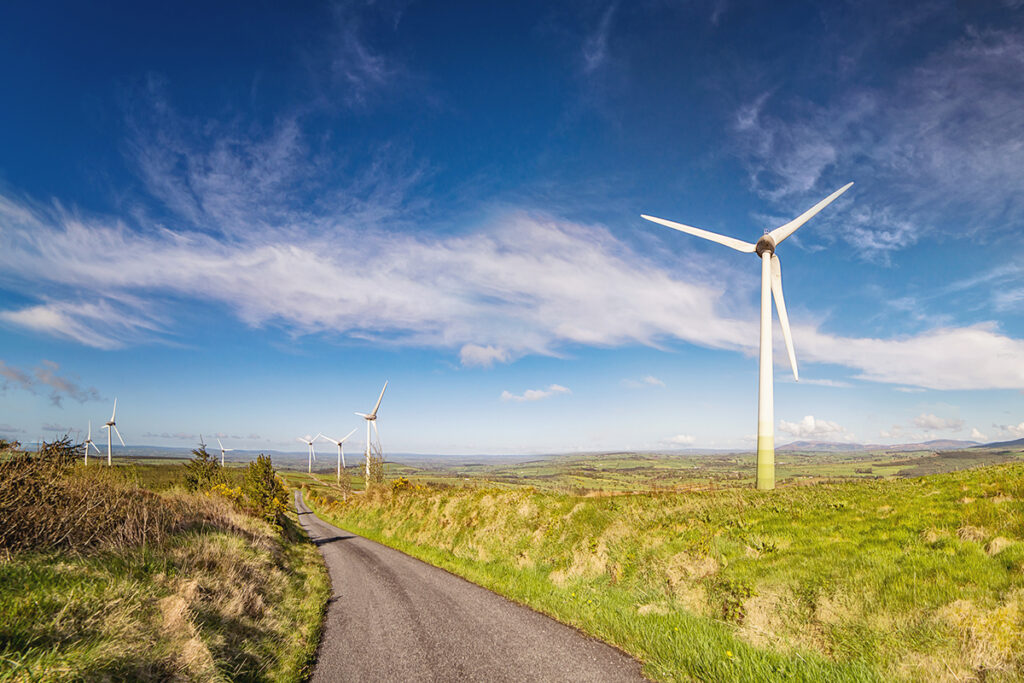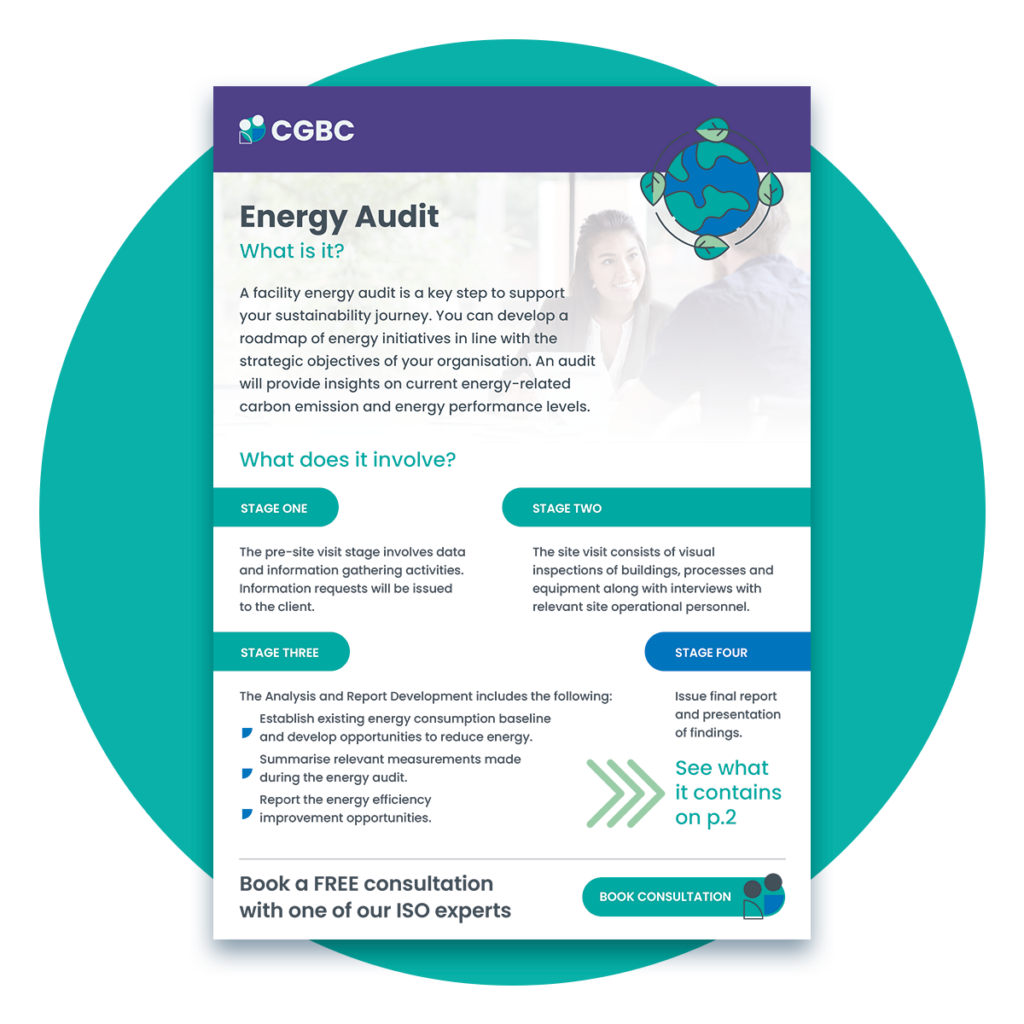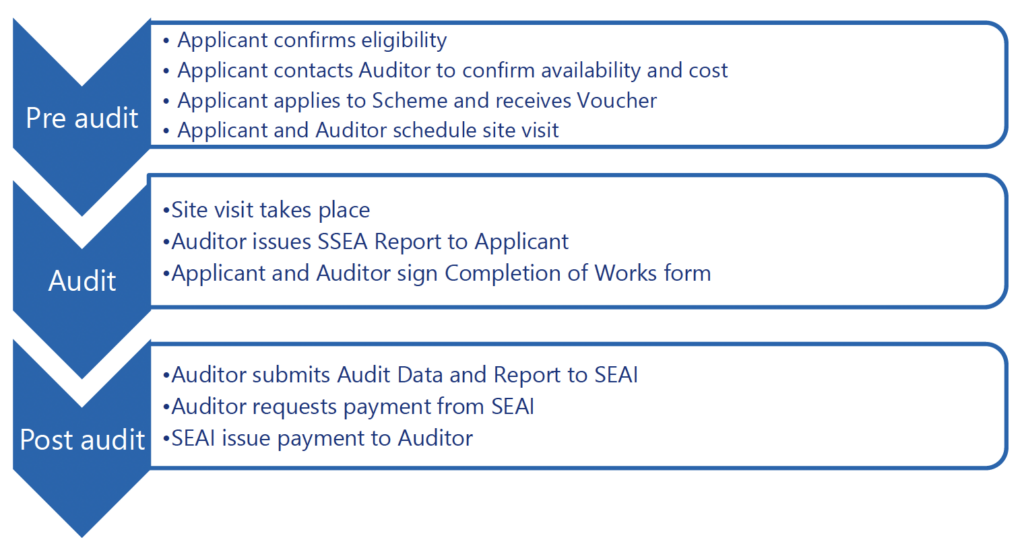Use the SEAI Support Scheme available to SMEs in Ireland for Energy Audits and join the Green Machine, adopting eco-friendly practices & energy-efficient choices with the help of grants. How can you access it?
In this blog, we talk about the SEAI Support Scheme for Energy Audits (SSEA) and look at how your company can access this government-funded financial support.

Ireland has been actively promoting energy audits as part of its efforts to improve energy efficiency and reduce greenhouse gas emissions.
Did you know that a simple energy audit can potentially save a significant amount of money and reduce environmental impact?
The SEAI Support Scheme for Energy Audits (SSEA) offers financial support to Irish SMEs to fund the cost of a consultancy-led Energy Audit the outputs of which will help them understand energy consumption and offer suggestions as to how they can achieve optimal energy management whilst simultaneously reducing energy bills.
The application process is pretty straightforward and the funding, which can be approved up to 100% of the total cost, it is in the form of a voucher redeemable by the authorised auditor on completion of the audit process.
What is an Energy Audit?
An energy audit of your business is a comprehensive assessment of your energy consumption, systems, and practices. It involves analysing energy usage patterns, identifying areas of inefficiency, and providing recommendations for improvements to reduce energy waste, lower costs, and enhance sustainability.
The audit typically covers various aspects, such as lighting, HVAC systems, insulation, appliances, and overall energy management strategies. It helps businesses identify opportunities to optimise energy usage, increase energy efficiency, and make informed decisions for a greener and more cost-effective operation.
What are the Benefits of an Energy Audit?
The benefits of an Energy Audit are manifold and usually result in significant savings in terms of time, money and energy. While they vary from company to company and situation, location and industry, most businesses can expect to see tangible, positive results in the areas of cost, consumption, risk and performance.
Essentially, the key objectives of an Energy Audit are to ascertain:
- How much Energy your organisation consumes
- Where and How it uses energy, identifying those areas/pieces of equipment with the highest levels of usage
- What recommended actions should be taken to save energy, reduce costs, leverage opportunities and drive sustainability
How can an Energy Audit help my business?
- Cost Savings: Uncover energy waste and inefficiency within a business.
- Environmental Impact: Businesses have a responsibility to minimize their environmental footprint. Energy audits play a crucial role in identifying energy-saving opportunities and reducing greenhouse gas emissions.
- Enhanced Energy Performance: This can include upgrading equipment to more energy-efficient models, optimizing HVAC systems, improving insulation, or implementing lighting retrofits.
- Compliance with Regulations: Help businesses understand and comply with these requirements.
- Competitive Advantage: Customers and clients are increasingly environmentally conscious and prefer to engage with companies that demonstrate a commitment to sustainability.
- Employee Engagement: This engagement fosters a sense of responsibility, teamwork, and pride in contributing to a more sustainable workplace.
What Does an Energy Audit Entail?
An Energy Audit typically involves a consultant from an approved third party conducting a site visit to inspect areas of the business associated with energy consumption and wastage. During this scheduled site visit, the consultant will carry out a detailed inspection of buildings and systems – electrical, mechanical & process – to determine energy consumption and identify areas for improvement across the organisation. During the audit process, an inventory of all electrical equipment and tools is made and included in the findings. An energy audit is typically carried out across all locations & buildings, and plant and tool, as well as operations including processes and systems.
Audit split into three stages below:
- Preparation/Data Gathering
- Site Visit/Review/Analysis of Findings
- Reporting/Recommendations
How long does an Energy Audit normally take?
- 30-60 minute consultations call with an expert consulting firm to gain a understanding of your business and talk you through the application for SEAI
- You gather and provide the data and information such as Electricity bills, fuel invoices, Building layout drawings, Asset or equipment lists and Activity metrics such as production output, occupancy weather data etc..
- One or two day(s) on site visit from an energy expert consultant(s) to conduct the audit after which, you will be delivered back a full energy audit report to discuss the opportunities identified
During the site visit, which would typically take 3-4 hours per site on average, a client representative is required to lead the auditor on a site walkthrough and provide them with requested operational details and documentation including an overview of energy types, usage and consumption. Once the audit process has been completed, the auditor will schedule a meeting with the client to discuss the detailed findings of their Energy Audit Report including the opportunities for improvement identified during the review.
Don’t worry, all the heavy lifting is done by the Energy Auditor!
Data usually required from the client side would typically include:
- Energy bills & Fuel invoices including (where available) intervals data, or, access to Online Billing data for a minimum period of one year
- Energy Monitoring Data Sets (Energy Consumption Data typically captured by Smart Meters)
- Electrical and Mechanical drawings (Electrical Systems, Ventilation, Wiring etc.)
- Site Plans (Including Location of Large Electrical Assets such as Generators et)
- Building layout drawings (Detailing location of doors, windows, stairs etc.)
- Asset or Equipment Lists (Inventory of electrical equipment)
- Process Diagrams (Eg Visual representation of relationship between Plant/Equipment and processes employed to run/manage same)
- Activity Metrics such as Production Output, Occupancy, Weather Data etc..
Guide to Energy Audits

This resource will guide you through the process of an Energy Audit so you know what to expect.
An Energy Audit is often the first step to a more sustainable future for your business.
How can CG Business Consulting help with Energy Management?
CG Business Consulting has been helping Irish businesses, especially SMEs, achieve effective Energy Management for over a decade. Certified to the highest standards, CG Business Consulting employs a large team of cross-discipline accredited ISO Consultants all of whom have amassed several years practical experience of partnering with organisations, large and small, across Ireland.
Our consultants collaborate with client representatives or teams to achieve excellence in Customer Service, Sustainability, and Environmental and Energy Management through the implementation of ISO’s robust, process-driven framework. They have helped clients across the full spectrum industries to establish a forward-facing green energy strategy, deliver significant savings in energy and waste costs, and achieve tangible results in energy and resource performance.
If you are considering applying for SEAI Energy Audit funding and/or are thinking about how you can improve your organisation’s Energy Consumption/Management processes, why not give us a call on 01 620 4121 or email us at hello@cgbc.ie and have a chat with one of our team.
Join us on a journey unravelling mysterious energy guzzlers as our energy auditors have seen it all. So, sit back, relax, and prepare for a seamless journey to getting your business more Eco-friendly! Energy Audits pave the way for more efficient energy use and a greener future. In summary, while implementing energy-saving measures may require some initial investment, the long-term benefits listed above far outweigh any time spent. By strategically managing energy consumption and embracing sustainability, businesses can create a win-win situation where they save money, gain a competitive edge, and contribute to a healthier environment.
While Energy audits may be serious business when it comes to efficiency and sustainability, we like to take a friendly and bespoke approach to each client’s needs, so don’t delay and call CGBC. After all, saving energy doesn’t have to be hard work —let’s sprinkle this problem with some friendly professional insight and financial grants along the way!
Who can Apply for the SSEA?
Who can Apply for the SSEA?
Applications are open to SMEs and other non-constrained commercial or public sector entities ONLY. (See Rules)
How Do I Apply for the SSEA and How Difficult is the Process?
Application is via the SEAI online portal and the process is pretty simple and easy to follow. The portal includes Guide documents for applicants including a handbook, Ts & Cs and a FAQ.

How do I qualify for the SSEA?
Applicants must have an annual energy spend of Euro 10k or greater to qualify for the scheme. This threshold relates to Electricity and Heating only. Spend must be confirmed by the presentation of Utility Bills to the Auditor.
Applicants must also be Tax Compliant with business registered in the Republic of Ireland.
How much funding is available under the SSEA?
The support offered under the Scheme is a Voucher with a value of €2,000. As the cost of the Energy Audit is set by the Scheme Auditors and not the SEAI, the Voucher may cover all or part of the overall cost.
The voucher is issued directly to the applicant who passes it to the Auditor upon completion of the Audit process.
I’ve heard of an SEAI Academy. What is it?
The SEAI Academy is an online, e-learning resource designed to help organisations achieve optimal energy efficiencies and drive down energy costs. Using short, snappy interactive modules, this user-friendly platform facilitates 24/7 self-paced learning.
And most importantly, IT’S FREE!
https://www.seai.ie/energyacademy/
How do I find an approved Scheme Auditor?
CGBC has a team of exceptionally talented and highly experienced Energy & Sustainability Auditors who will be more than willing and certainly very capable of guiding you and your team towards optimal Energy Management.
FURTHER INFORMATION
- Access CG Business Consultings guide to Energy Audits
- For more information on the SEAI Support Scheme for Energy Audits – click HERE
- A list of Government funded supports and sustainability resources including a Climate Toolkit 4 Business and link to the SEAI Energy Academy can be found on the DETE website.




